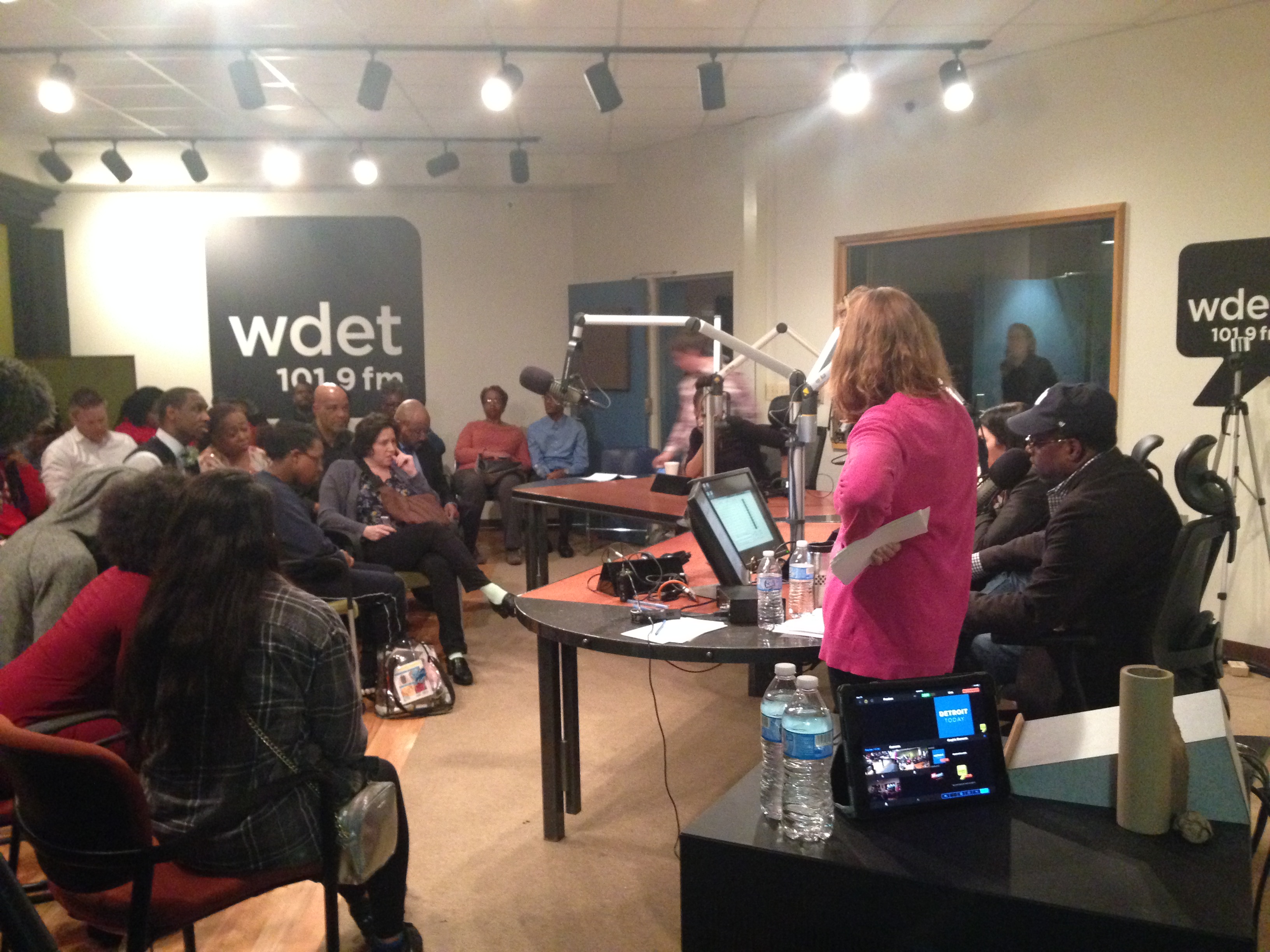Detroit Today…Tonight: How’s Detroit Doing with Education? [VIDEO, COMMUNITY MEETING]
Students, teachers, lawmakers are in studio for a community conversation about schools.
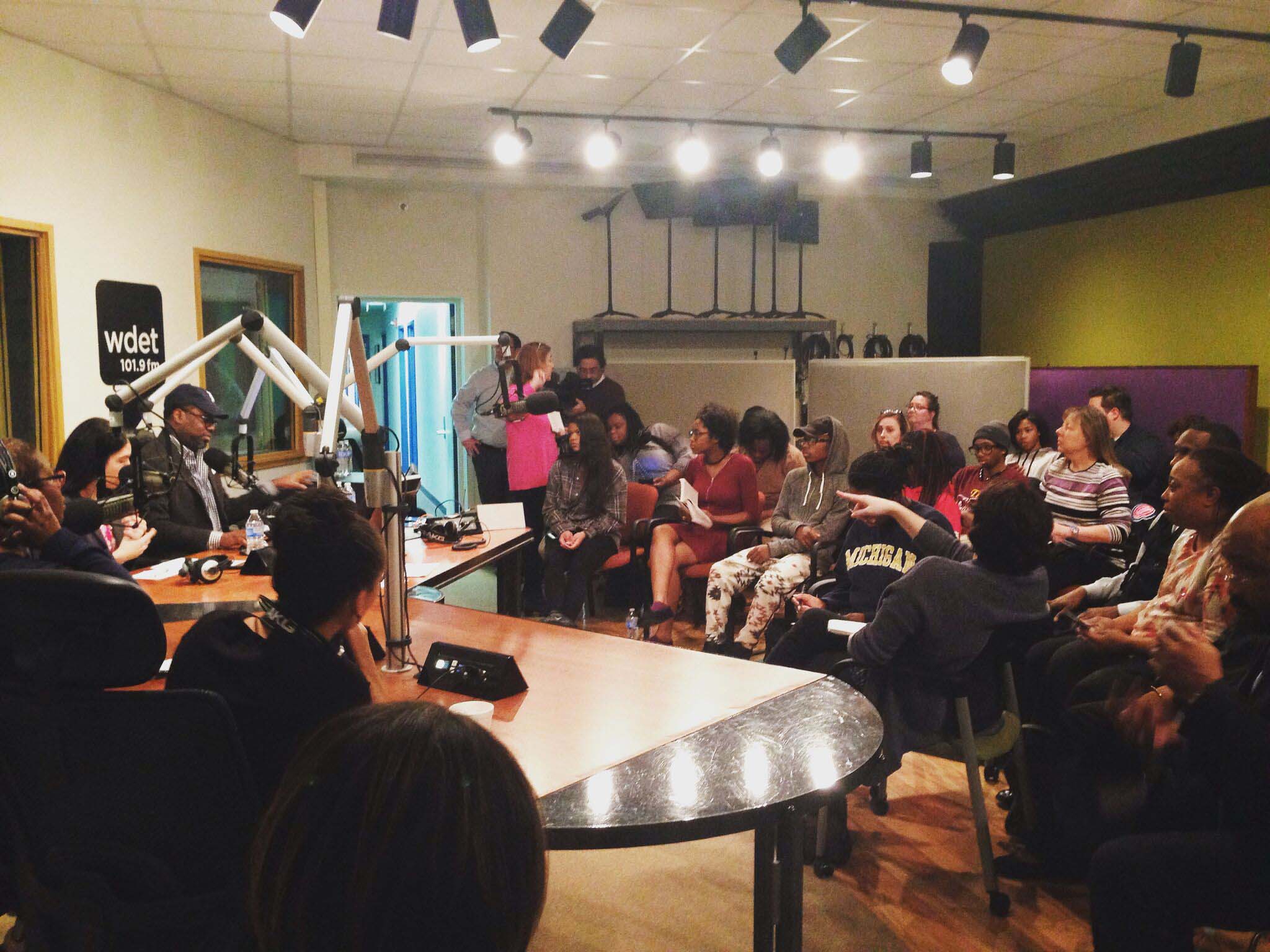
Click above to watch WDET’s Facebook Live stream of “Detroit Today…Tonight: How’s Detroit Doing with Education?”
Detroit Superintendent Alycia Meriweather and Michigan Senate Education Chair Phil Pavlov are in studio with a live audience of students, teachers, parents and employers. They’re all here to talk about the community’s concerns and priorities for schools. This special broadcast of “Detroit Today” is part of our work with the Detroit Journalism Cooperative, funded by the Corporation for Public Broadcasting and the Knight Foundation.
Host Stephen Henderson opened the show by thanking the studio audience. “Students, parents, teachers. The people who are on the front lines,” Stephen says. “These are the people who have to navigate these choices.”
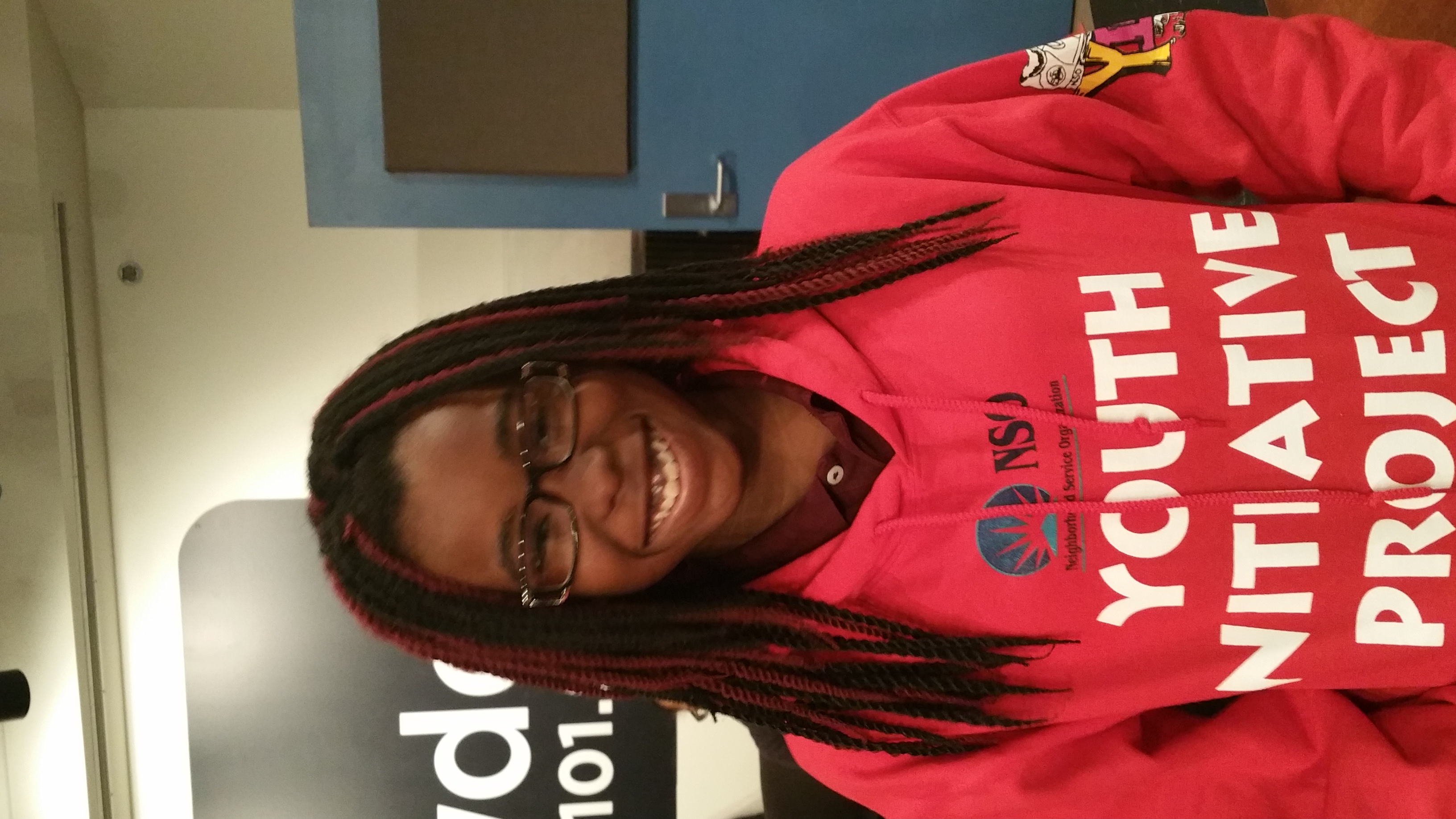
The first question came from Raychel Burwell, a student at Osborn. “Equality doesn’t mean both sides receive the same thing. It means they receive what they need. We don’t want what everyone has. We need to keep schools open and afford supplies,” she said.
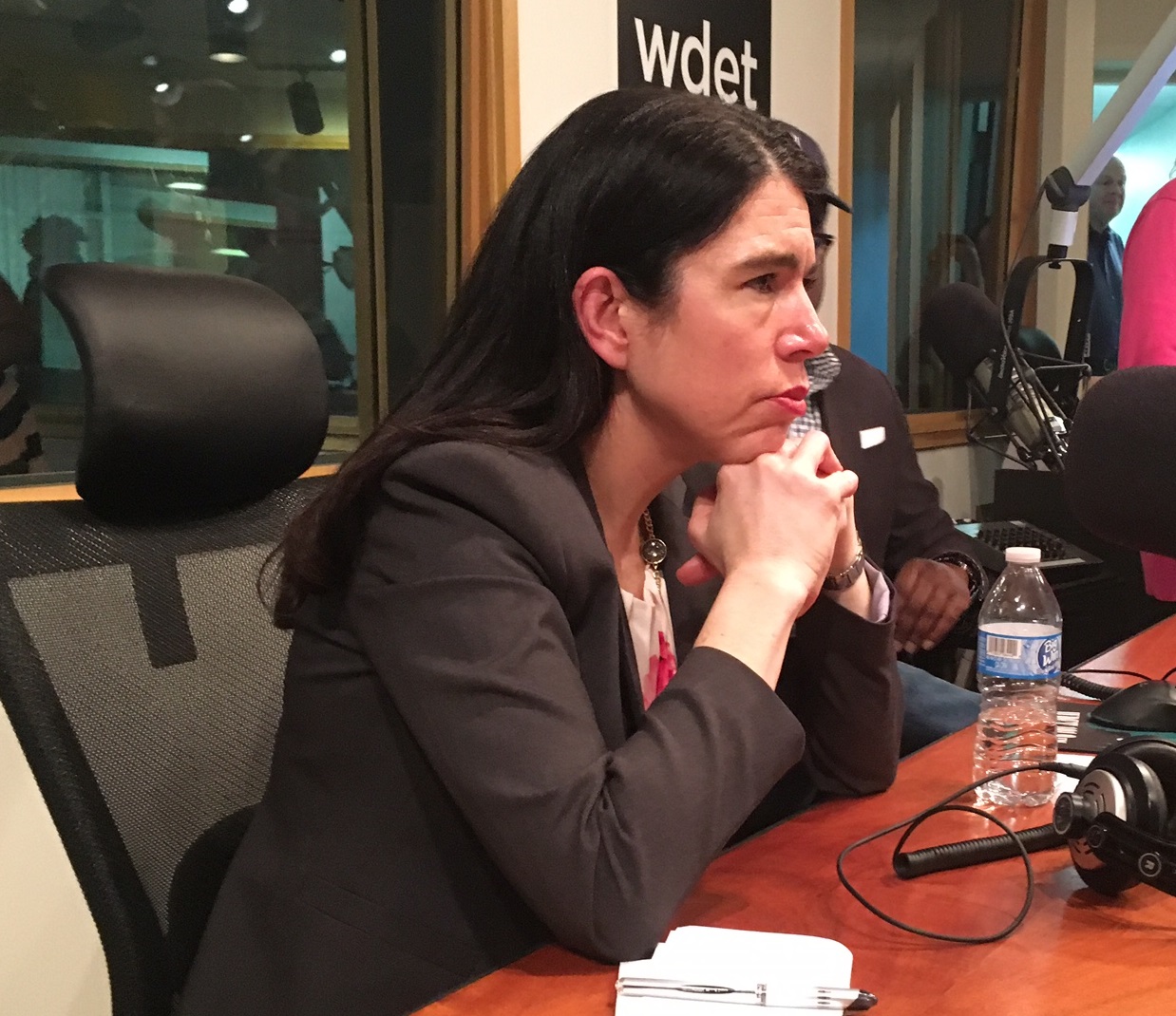
Alycia Meriweather, Detroit’s superintendent responded. “The difference between equity and equality is exactly what you just outlined,” she said. “In order for education to advance anywhere … we have to address this issue of inequality. When different schools and different students need different things then those different things should be provided. If we don’t close that gap we will never ever achieve the goals we’ve set for ourselves and our students.”
Yakuza, who used to attend Detroit Public Schools asked about how schools could be decriminalized. “There’s a definite tension between students, teachers and staff with everything from metal detectors to drug dogs,” Yakuza said. “It doesn’t seem like there’s a real equal opportunity place for everybody to learn on an equal level.”
Meriweather said she’s seen classrooms where there is respect and some with tension. Something I’ve seen in the role as an administrator. … you see everything across the whole gamut,” she said. “We also have schools that don’t rely on metal detectors to have order. …. One thing I’ve observed is that when fear exists, respect is very difficult to come by. One of the first pieces is to pull back fear.”
The panel, including WDET’s Sascha Raiyn and Bridge Magazine’s Chastity Pratt, followed up Yakuza’s question with their own questions about how the district can reduce suspensions.
“What we really want is a modification of behavior that gets us to the end goal of having a culture in the classroom that facilitates respect in a teaching and learning environment,” Meriweather said. “We have some schools who have implemented in-school (suspension) opportunities…so there’s an opportunity at the school where they’re engaged in actual learning all day instead of being at home where learning may not occur.”
Imani Harris, who has been on WDET’s Detroit Today before, asked Meriweather about how she will include students in the conversation.
“I think today was a really good start but I want to know how you plan on working with students,” Harris asked. “We haven’t had local control in a while so what would that looks like, working with students, listening to students, planning with students. … .We can tell you what we see because things aren’t always as they seem.”
Meriweather answered that when she’s visiting schools throughout the city, she makes it a point to walk the hallways with students and talk with them, sometimes to their surprise. “I’ve also had some sitdowns with students at various schools. I’ll continue to do that. That’s more formal where we sit and I listen,” she said. “I take advantage of every opportunity I have to talk and listen. A lot of times when you’re in the school the student is the last person you’re listening to… as adults we’re engaged at a different level and we miss what’s actually going on.”

Turning to the educators in the studio audience, Tannesha Johnson, a teacher at Denby, asked about how Detroit’s public district is different becoming Detroit Public Community School District.
Meriweather explained how the new district was restructured to shed some of its financial obligations.
“We were allowed to start Detroit Public Schools Community District on July 1 and the debt that had been accumulated over the last several years was satisfied,” Meriweather said. “The new district is virtually debt-free. The old district was literally paying about $1,100 to pay for debt. Right off the top of our per-pupil state aid, $1,100 was going to pay debt. … That made an incredible difference in how we could proceed.”
A year ago, Meriweather said, the district had sick outs and protests with much public debate about the fate of the schools. “The fact we were about to run out of money in April and then we were about to run out of money at the end of the year,” Meriweather said. “It was a time of turmoil and chaos and anxiety.”
She said now, the district is “on a path to a sustainable positive future. … It doesn’t mean we’re where we should be and our student deserve for us to do that work and be focused on teaching and learning.”
State Sen. Phil Pavlov, (R-St. Clair), who chairs the Senate Education Committee, said the relationship between Lansing and Detroit has improved.
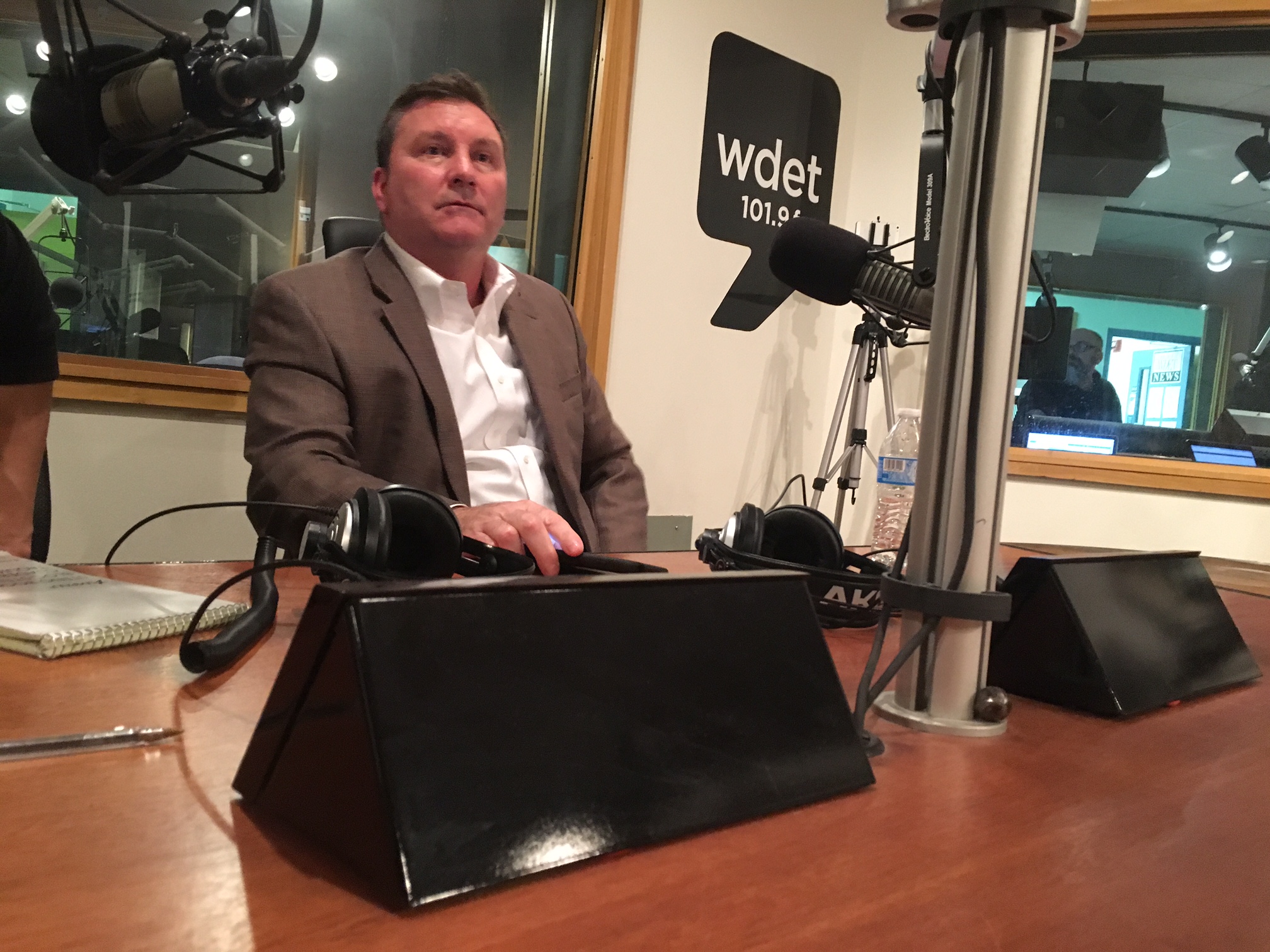
“Too often we get focused on the failures and we really need to be moving off of that, acknowledge that they’re there but let the community come in and wrap around that school building,” he said. The improvements for education in the city, he said, “Aren’t coming from Lansing. They’re coming from Detroit.”
Pavlov responded to a question about why so many schools were slated to be closed. “Just to say that they’re closed doesn’t solve any of the problems It only creates more,” Pavlov said.
He described how parents in Pontiac, notified that their school was targeted for closure for poor performance, were told by state officials that they could send their children to a district a 45-mile drive away.
“I also heard from parents who from the bottom of their hearts aid two miles to another school is a huge barrier,” Pavlov said. “That kind of barrier is a barrier to success and the quality that they need.”
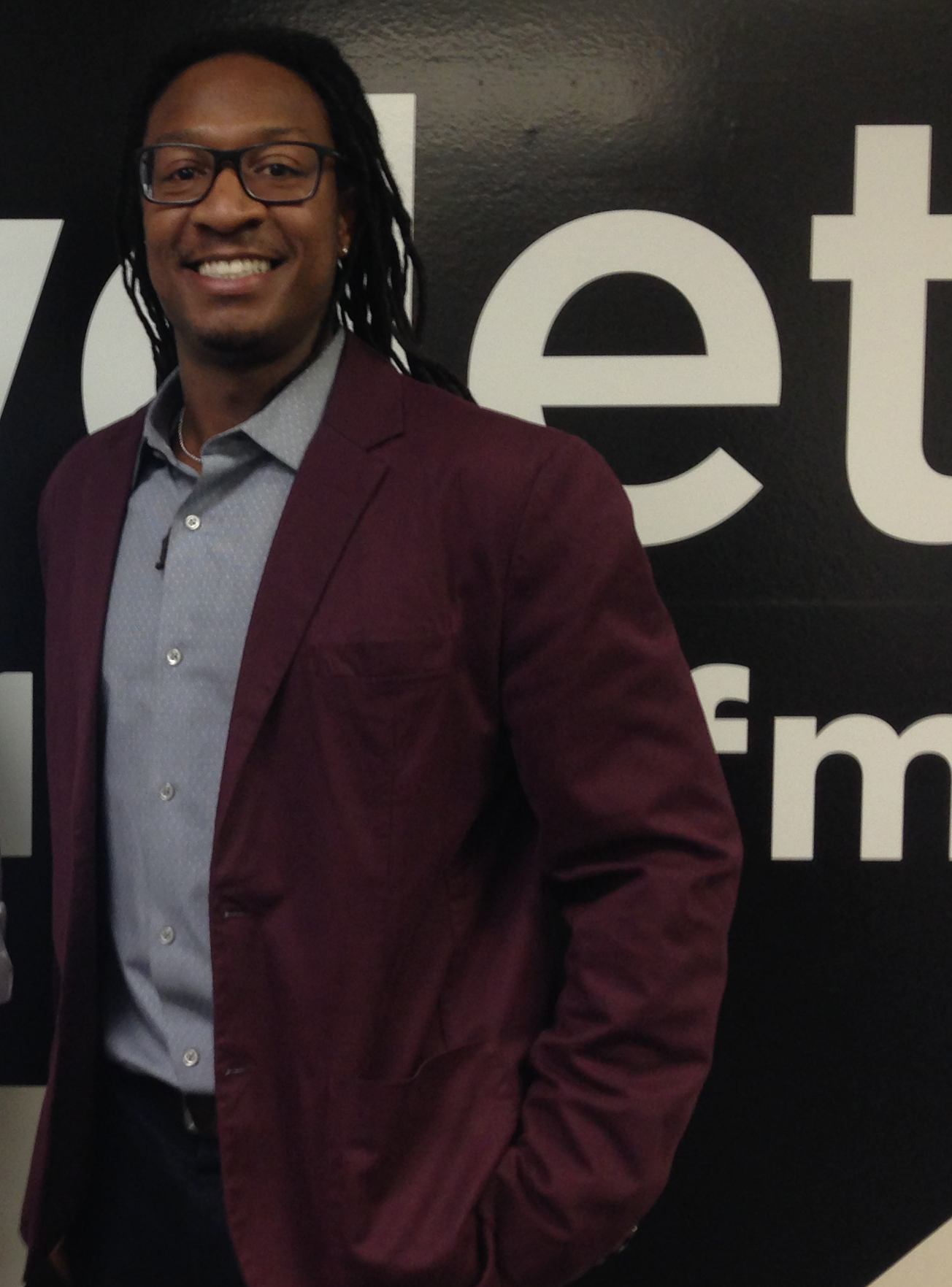
Turning to vocational education, Marcus Jones of the Detroit Training Center, asked how skilled trades could be integrated into the current DPS curriculum.
Meriweather answered that the district recently signed an agreement with the city to provide more vocational education and is adding a career focus at each high school.
“Looking at this fall you’re going to see that evident in all of our schools but our career tech centers will remain open,” Meriweather said.
